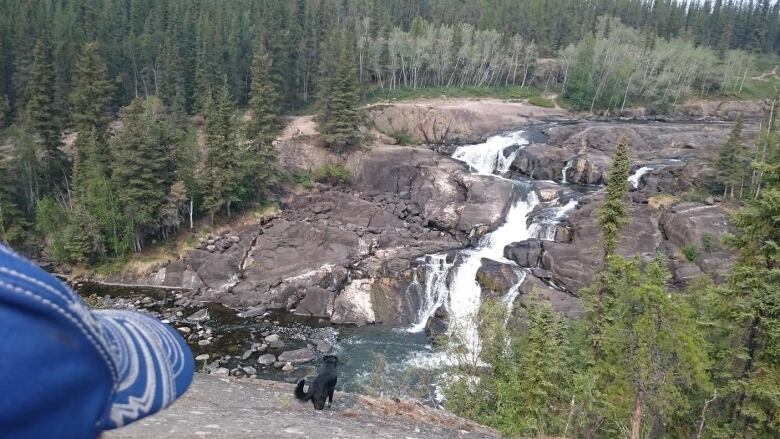Northern Canada will keep getting drier as temperatures rise, says scientist
Dry conditions have already cost Northwest Territories millions

A U.S. climate scientist says northern Canada will continue to get drier as warmer air temperatures cause snowpacks to shrink and increase evaporation from lakes and plants.
Kevin Trenberthwith the National Center for Atmospheric Research in Boulder, Colo., saysglobal warming makes dry places drier, and the North will continue in that direction.

Four years into a drought, dry conditions are already costing the Northwest Territories millions of dollarsmoney spent fighting record numbers of forest fires and running diesel generators to make up for low hydroelectricity generation due to low water levels.
- N.W.T. avoids power rate hike with $29.7M to cover diesel costs
- 2015 N.W.T. fire season was the 2nd-worst on record
Last week, N.W.T.Finance Minister MichaelMiltenberger wonderedif the situationis "a new normal" whilespeaking with reporters about the low water levels.
Trenberthis predicting more precipitation in northern Canada, but shorter winters and more opportunity for evaporation.
"The North is expected to see somewhat greater precipitation, and that is simply because the air is not freeze-dried as much," says Trenberth.
"But at the same time the snow season gets a little shorter. It's truncated at both ends and the snowmelt begins sooner. The runoff occurs a little sooner. As a result, when you get to May, or thereabouts, the snowpack is less."
Trenberth says it's hard to predict precipitation and it's possible an increase in precipitation could offset a large percentage of increased evaporation from water bodies and plants. He says the water cycle in the North will become more active andvigorous.
"Any droughts that do occur tend to be more extreme, and when we do get heavy rain, there is a risk of those rains being a bit stronger,"he says.
Trenberth was one of the first scientists to research El Nino. He's predicting large storms in California and across the central United States this winter, which he says could take moisture away from southern Canada, continuing dry conditions.












_(720p).jpg)


 OFFICIAL HD MUSIC VIDEO.jpg)
.jpg)



























































































